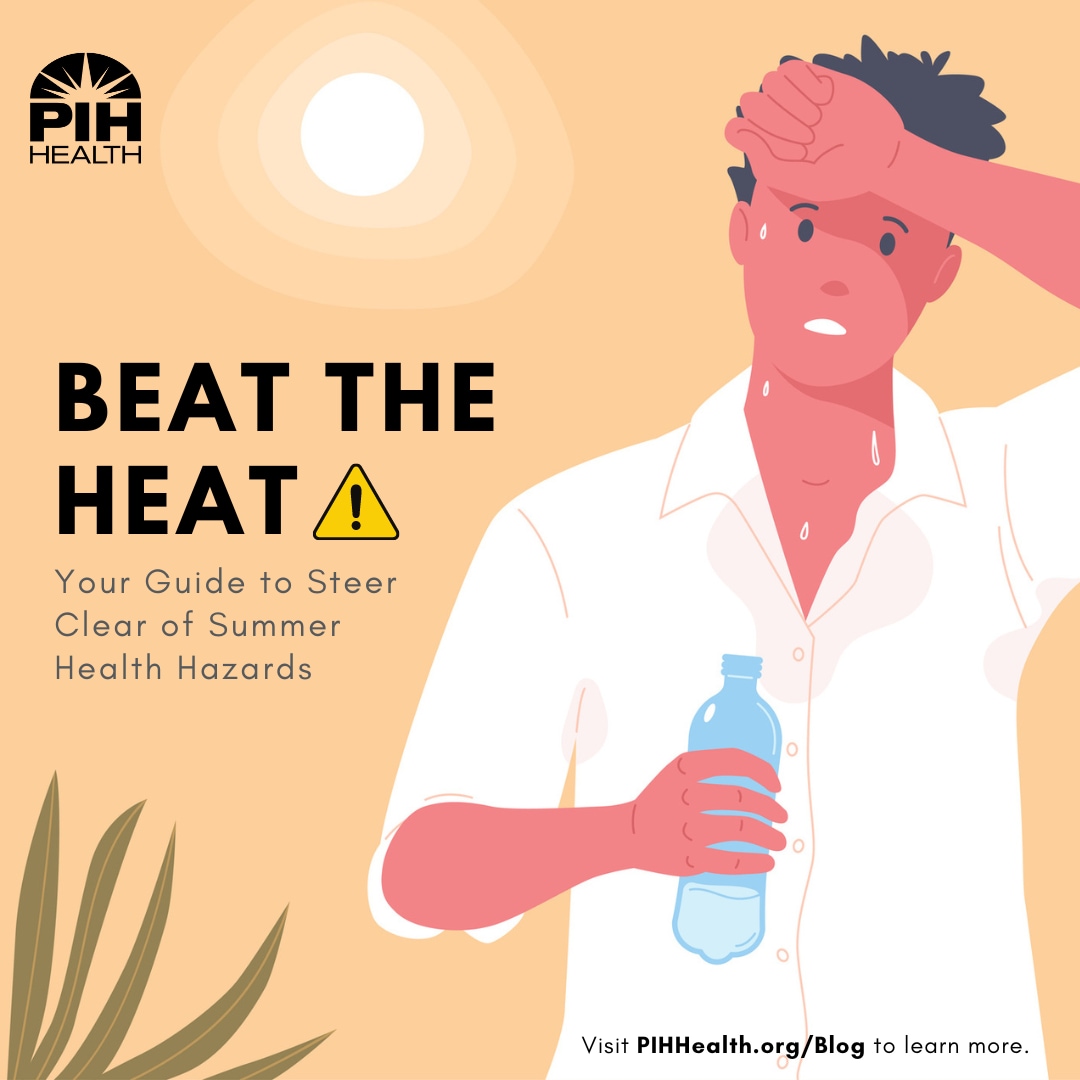Beat the Heat: Your Guide to Steer Clear of Summer Health Hazards

Summer offers the perfect opportunity to unwind, embark on adventures, and embrace exploration. However, it's essential to be mindful of potential hazards that could lead to illness or injury. Don't allow these risks to overshadow your enjoyment. Instead, adopt some preventive measures to ensure that your summer is free from worry and brimming with joy and cherished moments,.
Discover the typical summer health risks and how to keep them from spoiling your summer adventures!
Heat Illnesses
“High temperatures during summer pose a significant health risk, often leading to heat-related illnesses such as heat exhaustion and heat stroke”, said Alexis Urzua FNP-C, certified family nurse practitioner at the PIH Health South Gate Medical Office Building. To prevent heat illness:
- Minimize outdoor exposure during extreme heat
- Seek shelter in air-conditioned spaces, if available
- When outdoors, find shaded areas and reduce physical exertion
- Stay well hydrated
Water Injuries
Jumping into a lake, ocean or pool can be a cool relief in the summertime. However, it's important to exercise caution as there may be hidden hazards beneath the surface. Ensure you're aware of your surroundings before taking the plunge. Best practices for water safety are:
- Only dive into water when aware of its depth
- Swim accompanied by a buddy or in lifeguarded zones
- Be sure to supervise young children near any water, no matter how shallow
- Refrain from swallowing water to prevent illness from germs
Insect Bites and Stings
While summer outdoor activities are enjoyable, it's important to be aware of insects like ticks, mosquitoes, and bees. Their bites or stings can cause discomfort and, in some cases, transmit serious illnesses. To protect yourself:
- Apply insect repellent and wear long sleeves and pants in tick and mosquito-prone areas
- Conduct thorough tick checks on yourself and your pets post-outdoor activities
- If allergic to bee stings, carry an EpiPen or suitable medication for immediate treatment
Sun Damage
You may think it’s no big deal if you get an occasional sunburn, but every sunburn you get increases your risk of skin cancer. It also contributes to skin damage and causes wrinkles, sunspots and dry skin. Some burns are severe enough to require medical treatment, although most will just cause temporary pain and discomfort.
The best way to avoid sun damage is to:
- Reduce sun exposure and apply sunscreen daily, even on cloudy days.
- Use broad-spectrum, water-resistant sunscreen with SPF 30 or higher, reapplying every two hours or after swimming.
- Safeguard your eyes with sunglasses for added protection